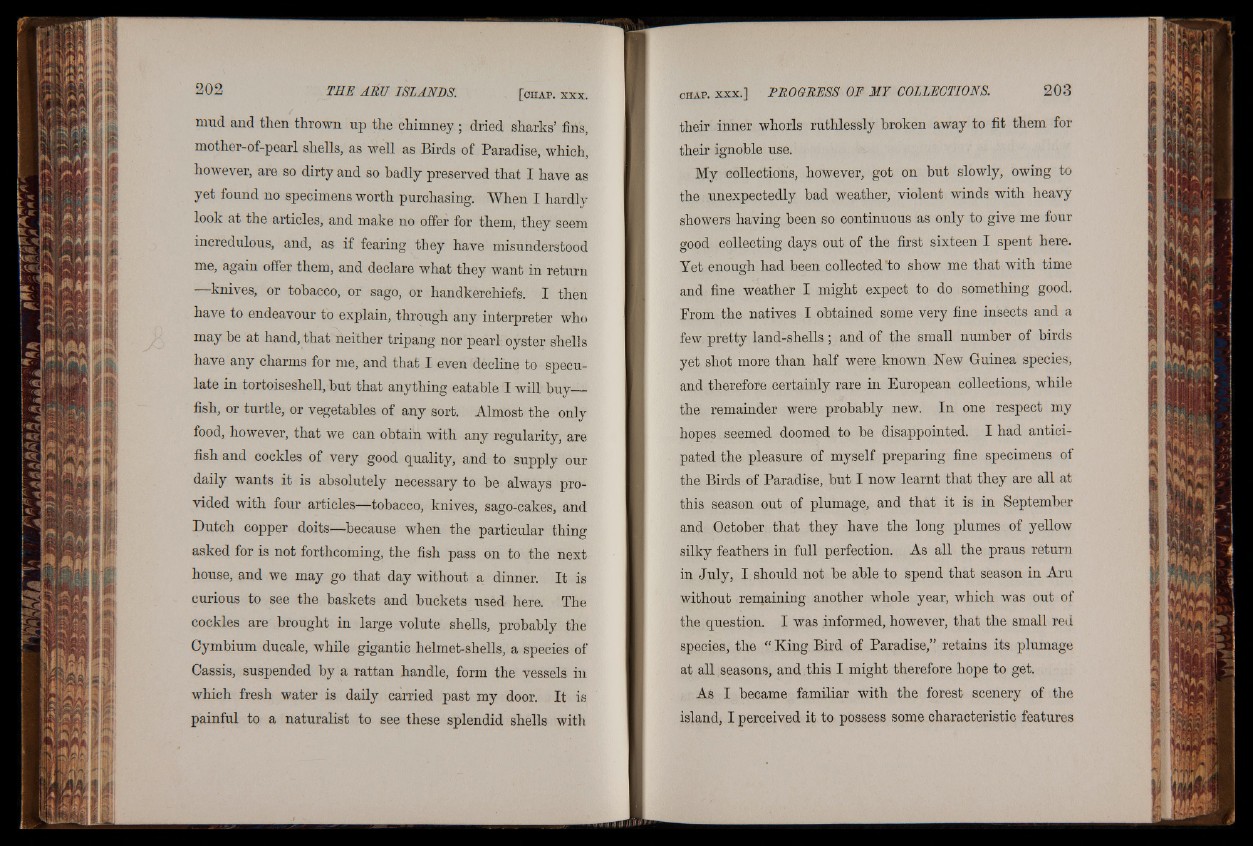
mud and then thrown up the chimney ; dried sharks’ fills,
mother-of-pearl shells, as well as Birds of Paradise, which,
however, are so dirty and so badly preserved that I have as
yet found no specimens worth purchasing. When I hardly
look at the articles, and make no offer for them, they seem
incredulous, and, as if fearing they have misunderstood
me, again offer them, and declare what they want in return
knives, or tobacco, or sago, or handkerchiefs. I then
have to endeavour to explain, through any interpreter who
may be at hand, that neither tripang nor pearl oyster shells
have any charms for rue, and that I even decline to speculate
in tortoiseshell, but that anything eatable I will b u y -
fish, or turtle, or vegetables of any sort. Almost the only
food, however, that we can obtain with any regularity, are
fish and cockles of very good quality, and to supply our
daily wants it is absolutely necessary to be always provided
with four articles—tobacco, knives, sago-cakes, and
Dutch copper doits'—because when the particular thing
asked for is not forthcoming, the fish pass on to the next
house, and we may go that day without a dinner. It is
curious to see the baskets and buckets used here. The
cockles are brought in large volute shells, probably the
Cymbium ducale, while gigantic helmet-shells, a species of
Cassis, suspended by a rattan handle, form the vessels in
which fresh water is daily carried past my door. It is
painful to a naturalist to see these splendid shells with
their inner whorls ruthlessly broken away to fit them for
their ignoble use.
My collections, however, got on but slowly, owing to
the unexpectedly bad weather, violent winds with heavy
showers having been so continuous as only to give me four
good collecting days out of the first sixteen I spent here.
Yet enough had been collected to show me that with time
and fine weather I might expect to do something good.
From the natives I obtained some very fine insects and a
few pretty land-shells ; and of the small number of birds
yet shot more than half were known Hew Guinea species,
and therefore certainly rare in European collections, while
the remainder were probably new. In one respect my
hopes. seemed doomed to be disappointed. I had anticipated
the pleasure of myself preparing fine specimens of
the Birds of Paradise, but I now learnt that they are all at
this season out of plumage, and that it is in September
and October that they have the long plumes of yellow
silky feathers in full perfection. As all the praus return
in July, I should not be able to spend that season in Aru
without remaining another whole year, which was out of
the question. I was informed, however, that the small red
species, the | King Bird of Paradise,” retains its plumage
at all seasons, and this I might therefore hope to get.
As I became familiar with the forest scenery of the
island, I perceived it to possess some characteristic features